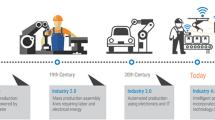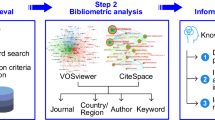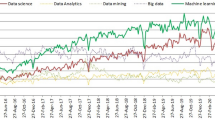Abstract
In recent years, the major technology of smart ships in the shipbuilding and marine sectors focuses on data platforms, telecommunications, and cyber security issues, which can only be mounted on ships if they meet technical specifications and performance requirements defined by international standards, not problems solved through technological development. Norway and Japan are taking the lead in standard development in this field, and the Korea is also actively participating to reflect the opinions of the domestic industry in the international community. However, related academic research has not been carried out systematically. Therefore, this study attempts to analyze the current status and development of standards in data-related fields among subcommittees of Ships and Marine Technology (SC), which are covered by Technical Committee 8 (TC 8) of the International Organization for Standardization (ISO). Especially, the tasks for the relevant subjects will be performed by appealing to the international society through participation in various international conferences attended by the subcommittee of SC 6 ‘Navigation and Ship Operation’, SC 11 ‘Intermodal and Short Sea Shipping’ or a work group of WG 10 ‘Smart Shipping’ under TC 8, considering the inputs from local experts and Korean Agency for Technology and Standards. In addition, this study examines the current status and problems of data platforms in the shipbuilding and marine sectors, and examines the strategies of Korea and the time and cost benefits that follow them. To this end, this study implements literature review and empirical analysis. This paper collected and analyzed Big Data from January 1, 2020 to December 31, 2020, using the keywords ‘smart ship’, ‘autonomous ship’, ‘marine big data’, ‘data integration platform’, and ‘ship Big Data’. While the domestic shipbuilders were developing their own smart ship data integration platforms, they agreed that they would be vulnerable to global smart ship data integration platform initiatives and standard data development. If the data integration platform is developed or improved through unprecedented collaboration in the competitive systems of the shipbuilding industry, it is would improve the competitiveness of the Korean shipbuilding industry by applying the shipbuilders' Captive volume. Investment costs can also be reduced by leading international standardization and improving platforms for shipyards through joint responses from international standards (ISO).
















Similar content being viewed by others
Data availability
Please contact the corresponding author for data requests. The languages used were Python.
References
Ajayi, A., Oyedele, L., Delgado, J. M. D., Akanbi, L., Bilal, M., Akinade, O., Olawale, O.;“Big data platform for health and safety accident prediction,” World Journal of Science, Technology and Sustainable Development, 2019
BIMCO et al,; “The guideline on cyber security onboard ships Version 3,” 2018.
Bao, J., Zheng, X., Zhang, J., Ji, X., Zhang, J.: Data-driven process planning for shipbuilding. AI EDAM, Cambridge 32(1), 122–130 (2018)
Cao, M., Guo, C.; “Key Technologies of Big Data and Its Development in Intelligent Ship,” In Proceedings of the 2017 International Conference on Robotics and Artificial Intelligence, ACM, pp. 61–65, 2017.
Chen, Hsinchun, Roger HL Chiang, and Veda C. Storey. "Business intelligence and analytics: from Big Data to big impact." MIS quarterly,1165–1188, 2012
Chong, A., Yee, L., et al.: Predicting consumer product demands via Big Data: the roles of online promotional marketing and online reviews. Int J Prod Res 55(17), 5142–5156 (2017)
Congjun Zhao.; “Collection and Application of Ship Energy Consumption Data Based on Image Recognition Technology,” Microprocessors and Microsystems, Elsevier, Vol.80, 2021.
Hee-Kyoung, Eum, et al.: A Study on Big data Utilization Policy by the Complex System Theory: Focused on 2030 Seoul City Comprehensive Plan. J Korea Inst Inform, Electron Commun Technol 8(4), 281–298 (2015)
Hideyuki Ando.; “Activities of smart ship application platform (SSAP) project,” JSMEA, 2020.
Lim, J.H.: Recent trends and proposed response strategies of international standards related to shipbuilding equipment big data integration platform, Master thesis of National Korea Maritime and Ocean University, 1–39 (2021)
https://www.statista.com/statistics/254266/global-big-data-market-forecast/ (Access on Feb 01, 2021)
https://www.transparencymarketresearch.com/marine-big-data-market.html/ (Access on Feb 01, 2021)
ISO/DIS 24060.; “Ships and marine technology – Software maintenance requirements of shpboard equipment,” 2020.
ISO/TC8/SC6 plenary, 2020.
ISO/WD 23807.; “Ships and marine technology – General requirements for the ship-shore data communication,” 2020.
ISO 16425.; “Ships and marine technology - Guidelines for the installation of ship communication networks for shipboard equipment and systems,” 2013.
ISO 19847.; “Ships and marine technology - Shipboard data servers to share field data at sea,” 2018a.
ISO 19848.; “Ships and marine technology – Standard data for shpboard machinery and equipment,” 2018b.
Jae-yong, L.: Change and Implications of Domestic Policy in Smart City. Converg Res Policy Center, Convergence Res Rev 4(5), 2018 (2018)
Jeon, S., Lee, D., Bae, M.: A Study on the Application Method of Munitions Quality Information based on Big Data. J Korea Acad-Ind Cooperation Soc 17(6), 315–325 (2016)
Jong-Sung Hwang et al.; “Smart City Development Outlook and Korea's Competitiveness,” Korea Information Society Agency, IT & Future Strategy, Vol. 6, 2016.
Jung-Gu Lee, “Smart City International Standardization Trends,” National Institute of Technology, 2019. (In Korean)
Korea Institute of Science and Technology Planning and Evaluation.: “World Leading Smart City R&D Project,” 2018.
Lee, S., Jung, I.: Development of a Platform Using Big Data-Based Artificial Intelligence to Predict New Demand of Shipbuilding, The Journal of The Institute of Internet. J Inst Internet, Broadcast Commun (IIBC) 19(1), 171–178 (2019)
Lee, J., Kao, H.-A., Yang, S.: Service innovation and smart analytics for industry 4.0 and big data environment. Procedia Cirp 16, 3–8 (2014)
Li, J., et al.: Big data in product lifecycle management. Int J Adv Manufact Technol 81(1), 667–684 (2015)
Li Yangqing.; “Standardization for smart shipping,” 2020
Lv, Z., Li, X., Choo, K.K.R.: E-government multimedia big data platform for disaster management. Multimedia Tools App, Springer 77(8), 10077–10089 (2018)
Ministry of Science and ICT,; “ICT R&D Technology Roadmap 2023, Smart City,” 2018.
Ministry of Land, Infrastructure and Transport (Ministry of Urban Economy),; “Article 2 (Definitions) of the Act on the Creation of Smart Cities and the Promotion of Industries, etc.”, 2017.
National Institute of Technology and Standards.: “2019 Standards-based R&D Roadmap, Smart City,” 2019.
National Institute of Technology and Standards.; “2019 Top 10 Strategic Trends for Standardization, Smart City,” 2019.
Pat Mooney.; “Blocking the chain: Industrial food chain concentration, Big Data platforms and food sovereignty solutions,” 2018.
Silver, D., et al.: Mastering the game of Go with deep neural networks and tree search. Nature 529(7587), 484–489 (2016)
Smart for urban innovation and future growth engine creation.; “TMT Strategy, Joint Committee of Related ministries,: 4th Industrial Revolution Committee, 2018. (In Korean)
Stanić, V., Hadjina, M., Fafandjel, N., Matulja, T.: Toward shipbuilding 4.0-an industry 4.0 changing the face of the shipbuilding industry. Brodogradnja Shipbuilding 69(3), 111–128 (2018)
Yongming Lang, Bo Yuan.; “Algorithm application based on the infrared image in unmanned ship target image recognition,” Microprocessors and Microsystems, Elsevier, Vol.80, 2021.
Acknowledgements
The authors thank the editor and anonymous reviewers for their helpful comments and valuable suggestions.
Author information
Authors and Affiliations
Contributions
-Blinded.
Corresponding authors
Ethics declarations
Ethics approval and consent to participate
Not applicable.
Consent for publication
Not applicable.
Conflict of interest
The authors declare that they have no competing interests.
Additional information
Publisher's Note
Springer Nature remains neutral with regard to jurisdictional claims in published maps and institutional affiliations.
Rights and permissions
About this article
Cite this article
Lim, JH., Kim, JH. & Huh, JH. Recent trends and proposed response strategies of international standards related to shipbuilding equipment big data integration platform. Qual Quant 57, 863–884 (2023). https://doi.org/10.1007/s11135-022-01382-0
Accepted:
Published:
Issue Date:
DOI: https://doi.org/10.1007/s11135-022-01382-0




